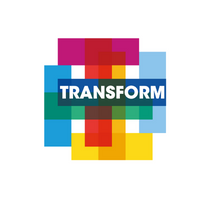
TRANSFORM
View Brand PublisherStartups, corporates, and governments can together TRANSFORM India’s approach to plastic circularity
TRANSFORM Plastics Challenge by Unilever, FCDO, EY, and Social Alpha is the latest example of a public-private partnership working towards this goal.
Over the past decade, an increasing number of nations around the world have been focused on curbing plastic pollution and encouraging plastic circularity. The United Nations announced 17 Sustainable Development Goals (SDGs) in 2015 to address many of the world’s most important socio-economic and developmental challenges and work towards a sustainable future. As many as 12 of these SDGs are concerned directly or indirectly with plastic pollution.
In 2018, India first committed to mitigating plastic pollution by announcing the phasing-out of single-use plastic by 2022. Efforts are underway at all levels – government, corporate, enterprise, and civil society – to address the issue through the three Rs – reduction, reuse, and recycling. While Indian enterprises are working to find alternatives at each level of the value chain, they need strategic and technical guidance along with funding to make their solutions scalable. The TRANSFORM Plastics Challenge, a joint initiative between Unilever, the UK’s Foreign, Commonwealth and Development Office (FCDO), and EY, in collaboration with Social Alpha is a step towards providing this much-needed support.
The challenge aims to accelerate technology-led Indian startups that are working on plastic waste management and circularity. It invites their participation to develop solutions for plastic waste processing; economically viable reuse of plastic; refill models; as well as material- or substrate-level innovations that make plastic packaging recyclable or compostable. Five startups, shortlisted from among the applications received for the challenge, will receive up to Rs 1.6 crore each through grant funding and equity investments, along with mentorship and scale-up support. The last date to apply is September 30, 2022.
“The Indian startup ecosystem is seeing an emergence of many enterprises focusing on solving climate challenges. By inviting startups that are already building innovative and scalable solutions in plastic circularity, the TRANSFORM Plastics Challenge aims to help ensure that plastic waste does not end up in landfills and oceans but stays in the circular economy, where it truly belongs,”, says Prashanth Venkatesh, Marketing Director, Brand Unilever & Sustainability at Hindustan Unilever Limited.
The areas within waste management and circularity that these identified startups will work on are integral to the Unilever Compass, which drives the company’s growth agenda. HUL aims to eventually provide the enterprises, which it discovers through the challenge, an opportunity to work with its supply chain basis right fit.
Smita Rakesh, Vice President, and Partner at Social Alpha, says, “Entrepreneurship powered by innovation has huge potential to address the problem of plastic waste and create impact through new material innovations, material recycling, complete packaging redesigns and perhaps a more fundamental rethinking of delivery to the end-customer. Partnerships are the key to driving innovative and scalable solutions, and we are excited to work with TRANSFORM, given their experience in supporting social enterprises.”
The TRANSFORM Plastics Challenge focuses on three problem statements:
01. Material recovery and waste to value
- Tying cost efficiencies to the collection and segregation of flexible plastics
- Innovations to be used for the processing/recycling of flexible plastic waste
- Resource recovery from waste streams leveraging science and innovations and/or value chains
02. Reuse and refill
- Business models that enable the reuse of packaging material in the value chain
- Refill-based systems that are user-friendly and economically viable
03. Material science innovations
- Materials or support to make packaging recyclable, compostable, or biodegradable
“Such public-private partnerships enable access to global resources for local enterprises beyond grant funding and mentoring ensuring long-term, sustainable impact,” says Prashanth.







